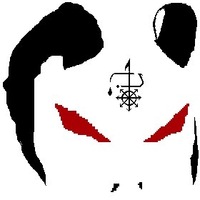Чьё-то.
Когда на землю опускаются сумерки, закрываются поликлиники и у всех специалистов заканчивается рабочий день, у народа наступает время наконец-то подумать о своем здоровье. Итоги этих печальных размышлений доставляются службой скорой помощи в приёмные отделения разных больниц. Основными неотложными диагнозами, с которыми страждущие поступают в приёмное отделение, являются: "херегознает", "авдругтамчё?", "настаиваетнагоспитализации" и "заебалазвонить". Последние два заболевания отличаются наиболее тяжёлым течением. Кроме того, у всех пациентов имеется тяжёлая сопутствующая патология: они убеждены, что в два часа ночи врач преисполнен гуманизма, интереса к профессии и очень им рад. На самом деле он рад всему этому делу примерно так же, как трипперу. Но будет лечить пациента, как лечил бы и триппер. Если больного сопровождают родственники, то они в тяжёлой форме страдают убеждённостью, что доктор в диком восторге, что они такие молодцы и не дают своей бабушке пропасть. Проведя обследование, врач приёмного покоя ставит свой диагноз. Обычно это оказывается "нихеранет". Дальнейшая тактика зависит от клинического опыта доктора и его служебного положения. Опытный врач знает, что сообщение данного диагноза пациенту вызывает резкое ухудшение, особенно при диагнозах направления "настаиваетнагоспитализации" и "надоелазвонить". Кроме того, это чревато развитием осложнений для доктора, как немедленных (истерика, скандал), так и отсроченных (жалоба главврачу, письмо в прокуратуру и газету). Диагностика осложнений облегчается тем, что во время немедленного осложнения пациент обычно сам сообщает об отдаленных. Пациенты с "херегознает" и "авдругтамчё?" иногда оказываются адекватными людьми и мужественно принимают приговор от "нихеранет". Но рассчитывать на это не стоит. Самой правильной тактикой является быстрое оформление пациента в отделение с диагнозом "херня". Если дежурный врач одновременно является лечащим в отделении, можно попробовать предположить диагноз "другаяхерня" и сбагрить пациента смежному специалисту. Но те - люди опытные, дураков брать себе чужую печаль нет и этот лечебно-диагностический приём обычно не удается. Ну а когда вы просто дежурант - смело кладите с "хернёй", пусть потом другие разгребают. Где-то с полуночи до четырех утра - стандартное время поступления больных с диагнозом "охереть". Патогномоничным симптомом для "охереть" является фраза "думал, что пройдёт". Больные с "охеретью" направляются в операционную, а тем временем продолжают поступать пациенты с "херегознает". Тут основным диагностическим приёмом является не торопиться обратно в приёмник. Хорошим вспомогательным методом является серьёзное лицо дежурного персонала и как бы междусобойные разговоры о том, что хирург выйдет еще нескоро. В этих условиях повышаются внутренние резервы организма, больной в порядке самопомощи становится способен поставить себе диагноз "нихеранета" и покинуть приёмное отделение до осмотра врача. Пациенты с "настаиваетнагоспитализации" и "надоелазвонить" остаются всегда. Они тоже занимаются самопомощью, облегчая себе муки ожидания с помощью скандалов дежурному персоналу и возмущения плохой работой медиков в принципе. Поэтому тут самой правильной тактикой будет немедленное оформление их с "хернёй", чтобы дать себе и сёстрам хоть часик поспать. Если, конечно, скорая не привезла вам очередной диагноз "охереть".
Когда на землю опускаются сумерки, закрываются поликлиники и у всех специалистов заканчивается рабочий день, у народа наступает время наконец-то подумать о своем здоровье. Итоги этих печальных размышлений доставляются службой скорой помощи в приёмные отделения разных больниц. Основными неотложными диагнозами, с которыми страждущие поступают в приёмное отделение, являются: "херегознает", "авдругтамчё?", "настаиваетнагоспитализации" и "заебалазвонить". Последние два заболевания отличаются наиболее тяжёлым течением. Кроме того, у всех пациентов имеется тяжёлая сопутствующая патология: они убеждены, что в два часа ночи врач преисполнен гуманизма, интереса к профессии и очень им рад. На самом деле он рад всему этому делу примерно так же, как трипперу. Но будет лечить пациента, как лечил бы и триппер. Если больного сопровождают родственники, то они в тяжёлой форме страдают убеждённостью, что доктор в диком восторге, что они такие молодцы и не дают своей бабушке пропасть. Проведя обследование, врач приёмного покоя ставит свой диагноз. Обычно это оказывается "нихеранет". Дальнейшая тактика зависит от клинического опыта доктора и его служебного положения. Опытный врач знает, что сообщение данного диагноза пациенту вызывает резкое ухудшение, особенно при диагнозах направления "настаиваетнагоспитализации" и "надоелазвонить". Кроме того, это чревато развитием осложнений для доктора, как немедленных (истерика, скандал), так и отсроченных (жалоба главврачу, письмо в прокуратуру и газету). Диагностика осложнений облегчается тем, что во время немедленного осложнения пациент обычно сам сообщает об отдаленных. Пациенты с "херегознает" и "авдругтамчё?" иногда оказываются адекватными людьми и мужественно принимают приговор от "нихеранет". Но рассчитывать на это не стоит. Самой правильной тактикой является быстрое оформление пациента в отделение с диагнозом "херня". Если дежурный врач одновременно является лечащим в отделении, можно попробовать предположить диагноз "другаяхерня" и сбагрить пациента смежному специалисту. Но те - люди опытные, дураков брать себе чужую печаль нет и этот лечебно-диагностический приём обычно не удается. Ну а когда вы просто дежурант - смело кладите с "хернёй", пусть потом другие разгребают. Где-то с полуночи до четырех утра - стандартное время поступления больных с диагнозом "охереть". Патогномоничным симптомом для "охереть" является фраза "думал, что пройдёт". Больные с "охеретью" направляются в операционную, а тем временем продолжают поступать пациенты с "херегознает". Тут основным диагностическим приёмом является не торопиться обратно в приёмник. Хорошим вспомогательным методом является серьёзное лицо дежурного персонала и как бы междусобойные разговоры о том, что хирург выйдет еще нескоро. В этих условиях повышаются внутренние резервы организма, больной в порядке самопомощи становится способен поставить себе диагноз "нихеранета" и покинуть приёмное отделение до осмотра врача. Пациенты с "настаиваетнагоспитализации" и "надоелазвонить" остаются всегда. Они тоже занимаются самопомощью, облегчая себе муки ожидания с помощью скандалов дежурному персоналу и возмущения плохой работой медиков в принципе. Поэтому тут самой правильной тактикой будет немедленное оформление их с "хернёй", чтобы дать себе и сёстрам хоть часик поспать. Если, конечно, скорая не привезла вам очередной диагноз "охереть".
Someone's.
When dusk falls on the ground, polyclinics are closed and all specialists have a working day, it’s time for the people to finally think about their health. The results of these sad reflections are delivered by the ambulance service to the emergency departments of various hospitals. The main urgent diagnoses with which sufferers enter the emergency department are: “here you are aware,” “avdrughtamche?”, “Insists on hospitality” and “call you back”. The last two diseases have the most severe course. In addition, all patients have severe comorbidities: they are convinced that at two o'clock in the morning the doctor is full of humanism, interest in the profession and is very happy with them. In fact, he is pleased with the whole case in much the same way as a clap. But he would treat the patient, as he would have treated the clap. If the patient is accompanied by relatives, then they are seriously afflicted with the conviction that the doctor is wildly enthusiastic, that they are such good fellows and do not allow their grandmother to disappear. After the examination, the doctor of the emergency room makes his diagnosis. Usually it turns out to be "nikheranet." Further tactics depend on the clinical experience of the doctor and his official position. An experienced doctor knows that the message of this diagnosis causes a sharp deterioration in the patient, especially with the diagnoses of the direction “insists on hospitalization” and “call me back”. In addition, it is fraught with the development of complications for the doctor, both immediate (hysterical, scandal) and delayed (complaint to the head physician, a letter to the prosecutor's office and the newspaper). Diagnosis of complications is facilitated by the fact that during the immediate complication the patient usually reports about the distant ones himself. Patients with "heregnoznaet" and "avdruhtamche?" sometimes they turn out to be adequate people and courageously accept the verdict from niheranet. But you should not count on it. The most correct tactic is the rapid clearance of the patient in the department with a diagnosis of "garbage." If the doctor on duty at the same time is the attending doctor in the department, you can try to assume the diagnosis of "other garbage" and sabat the patient to an adjacent specialist. But those are experienced people, there are no fools to take someone else’s sadness, and this treatment and diagnostic technique usually fails. Well, when you're just a custodian - feel free to put a "garbage", then let others rake. Somewhere from midnight to four in the morning - the standard time of admission of patients with a diagnosis of "oheret". The pathognomonic symptom for "oheret" is the phrase "thought it would pass." Patients with "oheret" are sent to the operating room, and in the meantime, patients continue to come in with "conscious". Here the main diagnostic technique is not to rush back to the receiver. A good auxiliary method is the serious face of the staff on duty and, as it were, interstitial talks about the fact that the surgeon will be out soon. Under these conditions, the internal reserves of the body increase, the patient, by way of self-help, is able to make a diagnosis of niheranets and leave the emergency department before the doctor examines. Patients with "insists on hospitality" and "call you" always remain. They, too, are engaged in self-help, making it easier for themselves to wait for the meal with the help of scandals to the staff on duty and outrage at the poor work of the medical profession in principle. Therefore, the most correct tactic here is to immediately arrange them with “garbage”, in order to give yourself and the sisters at least an hour to sleep. Unless, of course, the ambulance brought you another diagnosis of "ohot".
When dusk falls on the ground, polyclinics are closed and all specialists have a working day, it’s time for the people to finally think about their health. The results of these sad reflections are delivered by the ambulance service to the emergency departments of various hospitals. The main urgent diagnoses with which sufferers enter the emergency department are: “here you are aware,” “avdrughtamche?”, “Insists on hospitality” and “call you back”. The last two diseases have the most severe course. In addition, all patients have severe comorbidities: they are convinced that at two o'clock in the morning the doctor is full of humanism, interest in the profession and is very happy with them. In fact, he is pleased with the whole case in much the same way as a clap. But he would treat the patient, as he would have treated the clap. If the patient is accompanied by relatives, then they are seriously afflicted with the conviction that the doctor is wildly enthusiastic, that they are such good fellows and do not allow their grandmother to disappear. After the examination, the doctor of the emergency room makes his diagnosis. Usually it turns out to be "nikheranet." Further tactics depend on the clinical experience of the doctor and his official position. An experienced doctor knows that the message of this diagnosis causes a sharp deterioration in the patient, especially with the diagnoses of the direction “insists on hospitalization” and “call me back”. In addition, it is fraught with the development of complications for the doctor, both immediate (hysterical, scandal) and delayed (complaint to the head physician, a letter to the prosecutor's office and the newspaper). Diagnosis of complications is facilitated by the fact that during the immediate complication the patient usually reports about the distant ones himself. Patients with "heregnoznaet" and "avdruhtamche?" sometimes they turn out to be adequate people and courageously accept the verdict from niheranet. But you should not count on it. The most correct tactic is the rapid clearance of the patient in the department with a diagnosis of "garbage." If the doctor on duty at the same time is the attending doctor in the department, you can try to assume the diagnosis of "other garbage" and sabat the patient to an adjacent specialist. But those are experienced people, there are no fools to take someone else’s sadness, and this treatment and diagnostic technique usually fails. Well, when you're just a custodian - feel free to put a "garbage", then let others rake. Somewhere from midnight to four in the morning - the standard time of admission of patients with a diagnosis of "oheret". The pathognomonic symptom for "oheret" is the phrase "thought it would pass." Patients with "oheret" are sent to the operating room, and in the meantime, patients continue to come in with "conscious". Here the main diagnostic technique is not to rush back to the receiver. A good auxiliary method is the serious face of the staff on duty and, as it were, interstitial talks about the fact that the surgeon will be out soon. Under these conditions, the internal reserves of the body increase, the patient, by way of self-help, is able to make a diagnosis of niheranets and leave the emergency department before the doctor examines. Patients with "insists on hospitality" and "call you" always remain. They, too, are engaged in self-help, making it easier for themselves to wait for the meal with the help of scandals to the staff on duty and outrage at the poor work of the medical profession in principle. Therefore, the most correct tactic here is to immediately arrange them with “garbage”, in order to give yourself and the sisters at least an hour to sleep. Unless, of course, the ambulance brought you another diagnosis of "ohot".
У записи 10 лайков,
0 репостов,
162 просмотров.
0 репостов,
162 просмотров.
Эту запись оставил(а) на своей стене Иван Мельников































